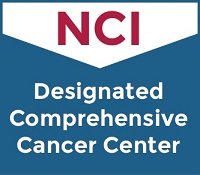Oral Cancer

Oral cancer affects any part of the mouth. These head and neck cancers can be on the lips, gums, inside of the cheeks and mouth or the front of the tongue. Oral cancers can often be found early by dentists or patients themselves in early stages and result in good survival outcomes.
More than 9 out of 10 mouth cancers form in the outermost layer of the oral tissues, resulting in squamous cell carcinomas.
The main treatments for mouth cancer — surgery with the potential need for radiation therapy — can cause side effects related to eating, talking and appearance. Choosing a cancer center with experience in oral cancers may lessen side effects and improve your quality of life after treatment.
At the University of Maryland Greenebaum Comprehensive Cancer Center (UMGCCC), our team of head and neck cancer doctors works together with other specialists to offer a comprehensive treatment plan.
We always try to use less invasive therapies that preserve healthy tissue. Several of our head and neck surgeons are also specialists in reconstructive or plastic surgery that can restore function and appearance after treatment.
Oral Cancer Treatment
Most oral cancers are treated by removing the tumor. Surgery is often followed by radiation therapy to kill cancer cells left behind and help prevent the cancer from coming back. For advanced oral cancers, patients may need chemotherapy, immunotherapy and/or a clinical trial.
The UMGCCC head and neck cancer team meets every week to discuss your case and develop personalized care plans. Your treatment plan may include:
- Surgery aims to remove the entire cancer and some nearby healthy tissue as a buffer. For cancers that have spread to the bone or lymph nodes, portions of these will need to be removed as well. Our head and neck surgeons and oral and maxillofacial surgeons use less invasive techniques whenever possible.
- Radiation therapy uses high-energy radiation to kill cancer cells. Often, radiation therapy is used after surgery. This helps prevent the cancer from returning. Often oncologists use a highly targeted technique such as proton therapy and intensity - modulated radiation therapy (IMRT). IMRT can decrease radiation on healthy cells and protect sensitive areas such as the eyes and brain.
- Chemotherapy delivers drugs to cancer cells to either kill or stop them from growing. Chemotherapy may be needed for advanced cancers or those that have returned.
- Immunotherapies allow the body's immune system to better detect and destroy cancer cells. Often given as pills, immunotherapy may be used when oral cancers don't improve after chemotherapy.
- Clinical trials can give patients an opportunity to try new, promising treatments years before they are widely available. As a National Cancer Institute-designated Comprehensive Cancer Center, UMGCCC offers a wide array of clinical trials.
Oral and Mouth Cancer Symptoms:
- Most often begin with a sore on the lip or in the mouth that doesn't heal.
- Can present as a lump, thickening or white or red patch — with or without pain, numbness or bleeding.
- May include a swollen or painful jaw or tongue that makes it difficult to chew or swallow.
- Can include loose teeth or dentures that don't fit as well as before.
Oral Cancer Diagnosis
Diagnosis of oral cancer often begins with a physical exam by a dentist or primary care provider. If a closer look is needed, your doctor may:
- Collect cells to be looked at under a microscope by gently scraping the lip or mouth.
- Take a tissue sample to be examined under a microscope.
- Order imaging tests such as MRI or CT, which can show if and where the cancer has spread.
- Order a barium swallow, a type of fluoroscopy called an upper-GI series. This shows if the cancer has spread into the upper gastrointestinal tract.
Non-Cancerous Mouth Tumors and Sores
Not every lump or sore in the mouth is oral cancer. However, some are considered precancerous and can raise one's risk for cancer. Others can be bothersome.
Just as our team is experienced in making accurate diagnoses of cancer, we are also equipped to treat non-cancerous (benign) oral growths. Some may require surgical removal. Others may just need regular exams.
Make an Appointment
The head and neck cancer team sees patients at a variety of locations in downtown Baltimore near and inside the University of Maryland Greenebaum Comprehensive Cancer Center.
To make an appointment with one of our specialists, please visit Locations and Appointments.


